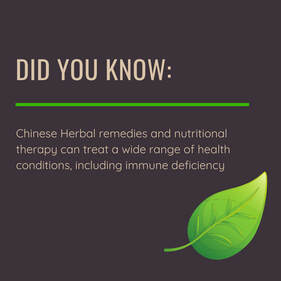 Having recurring migraines is similar to parenting a temperamental toddler. When they go from being annoying to actively disruptive and mildly infuriating, there is often little one can do but grit your teeth and persevere. The helpful suggestions for managing this occurrence involved a mixture of expert opinion, anecdotal hearsay, individual tinkering and a big dose of patience. So where does acupuncture fit into this picture? We'll start with expert opinion. Consider a 2013 systematic review that compared actual and placebo effects of several interventions for the treatment of migraines (1). The study showed that sham acupuncture had a stronger placebo effect than the oral pharmacological placebo, and furthermore the placebo effect of acupuncture was shown to be as strong as the true, active-drug treatment. So the research currently suggests even if one were to receive only the placebo benefit of acupuncture, it may still be as effective as taking a pharmaceutical for the treatment of migraines. That is promising research, but let's add anecdote for good measure. It is possible to stop a migraine in its tracks if one is able to see an acupuncturist during the acute stage of migraine. The release of endogenous opioids, the body's natural pain-relievers, combined with the stimulation of endorphins, can turn the worst headache into no more than a mild annoyance within that hour-long session. Acupuncture also treats nausea and vomiting, and it balances the hypothalamic-pituitary-adrenal axis (2), which is implicated in migraine pathology (3). Now for individual tinkering. Acupuncture is hyper-individualized, with each treatment responding to your body's symptoms at that exact moment, in a way specific to only you. Coming in for acupuncture during the acute stage provides the acupuncturist with valuable information about how your body is experiencing the strongest symptoms of migraine attack. This informs the treatments given afterward to prevent or reduce the severity of the next migraine. Weekly treatments downregulate stress hormones and create a more clear baseline from which to observe physiological patterns such as dietary and environmental triggers. This can help make your individual-lifestyle adjustments more effective in reducing migraines. And finally, patience is still the key when treating migraines. Acupuncture must be used regularly for an individually determined period of time in order for its full benefit to become apparent. In the same way that eating one kale leaf will not make one a beacon of health, neither will having just one acupuncture treatment. The goal is to set up and then reinforce a pattern of signaling in the body that is closer to the “rest and digest” mode of existence and further away from the “fight and flight” mode that governs our modern lives. Each acupuncture treatment helps reinforce the beneficial relaxing mode that reduces the prevalence of migraines. 1)Meissner, K, et. al. Differential effectiveness of placebo treatments: a systematic review of migraine prophylaxis. JAMA Internal medicine. 2013 Nov 25;173(21):1941-51. 2) Wang, S-J, Zhang, J-J, and Qie, L-L. Acupuncture relieves the excessive excitation of hypothalamic-pituitary-adrenal cortex axis function and correlates with the regulatory mechanism of GR, CRH, and ACTHR. Evidence based complementary and alternative medicine. 2014; 2014. 3)Tietjen, G. and Peterlin, B. Childhood abuse and migraine: epidemiology, sex differences, and possible mechanisms. Headache. 2011 Jun: 51(6):869-879.  Acupuncture is an ancient medical practice that has been delivering documented and positive results for a multitude of conditions. This practice has taken place for thousands of years and has been a reliable source of treatment for many ailments. Acupuncture is done by inserting needles into the skin at specific points on the body helping to correct imbalances and restore the natural flow of the body's energies, thus returning you to a more natural state of well-being. Evidence for the Effectiveness of Acupuncture for Back Pain The National Institute of Health (NIH) has published a number of studies that show acupuncture is quite effective as a pain management therapy. They have demonstrated that it is effective in treating neck, back, and joint pain in a multitude of studies. In their examination of treating chronic pain using acupuncture, the NIH concluded that, “Acupuncture appears to be a reasonable option for people with chronic pain to consider.” They found that those undergoing treatment during the study had positive results and subsided pain. According to PracticalPainManagement.com, “A review article found pain relief using acupuncture comes from deactivating the source of pain, modulating endorphin levels.” Even WebMD.com writes that, a “[…] recent review of 22 acupuncture studies showed that it provided short-term relief from chronic back pain.” This implies that alongside acupuncture treatment, eating well and taking care of your body in other ways such as eating well and exercising regularly can help your back pain. Pain Relief is Just One Benefit of Acupuncture For those suffering from long term, chronic pain - only one thing matters: relief. Chronic pain can degrade the quality of a person’s life, and make day to day activity unbearable. Those who suffer from it can lose their ability to work, and often lose the desire to do the things they enjoy. Effective pain management can absolutely improve a person's quality of life. While western pain relievers do work, the side effects and risk of addiction make them sub optimal. The job of the acupuncturist is to address chronic pain and offer a non-addictive, non-westernpain relief option. Acupuncture is safe, natural and drug-free. When we consider the ability of acupuncture to decrease the need for opiates and other dangerous painkillers, it’s easy to see how acupuncture not only relieves pain, but also saves lives. Give us a call today if you or a loved one is suffering from back pain.  Traditional Chinese Medicine (TCM) utilizes many different modalities to help keep the body free from disease. These modalities include acupuncture, moxibustion, nutrition, qi gong, tai chi and herbal formulations among many others. Chinese herbal medicine has been used for millennia to keep the body free from disease and to also help remove disease when it attacks by strengthening a weakened immune system by increasing red and white cell counts, T-cell count and enhancing humoral and cellular immunity. Herbs can be used alone or combined with other herbs to make more effective formulas used to strengthen the immune system when the body is fighting illness. Chinese Herbal remedies and nutritional therapy can treat a wide range of health conditions, including immune deficiency, by stimulating and balancing the immune system. TCM strives to regulate immune function and treat the underlying cause of the disease by reducing symptoms, speeding up the healing of infection and normalizing the body’s immune response. And while not all of the herbs we will discuss here are specific to TCM, they can be found and utilized easily. Reishi Mushroom: This fungi is sometimes called the “great protector” because it guards the body against the detrimental effects stress can have on the physical body. When taken regularly, it has been shown to improve immunity, while also calming the nerves. Specifically, it can help inhibit tumor growth in both breast and prostate cancer. Elderberry: Elderberry is a commonly used medicinal plant that is known all around the world. Elderberry has been gaining popularity over the past few years, and rightfully so! The berries and flowers of elderberry are packed with antioxidants and vitamins that can boost your immune system. Elderberry is most often taken as a supplement to treat cold and flu symptoms. Ginger: Ginger can be used fresh, powdered, dried, as oil and juice, and is even added to processed foods. Ginger has a long history of use in various forms of traditional and alternative medicines. It has been used to help digestion, alleviate nausea, reduce the risk of heart disease, and help fight the flu and common cold. Ginger can also reduce inflammation and alleviate exercise-induced muscle pain. Probiotics: Having the right gut bacteria is linked to numerous health benefits, including weight loss, improved digestion, and healthier skin. There is now substantial evidence that probiotics can provide benefits by improving and modulating immune function, regulating inflammation, and cell-to-cell signaling. Certain probiotics have even shown to decrease airway hyperresponsiveness and inflammation by inducing regulatory mechanisms. A great way to nourish a healthy gut is to consume foods filled with beneficial bacteria, rather than adding supplemental pills. This includes cultured dairy products like yogurt and kefir; fermented vegetables such as kimchi or sauerkraut; miso, tempeh, natto, and other fermented soy products; as well as kombucha (a type of fermented tea). Astragalus: This herb is a favorite among TCM practitioners and has a long history of use in Traditional Chinese Medicine for a variety of conditions, especially for those who are already fatigued. This herb is specifically known for its ability to strengthen the Wei Qi. Astragalus root is often used as a tonic to increase stamina (the ability to sustain prolonged physical or mental effort). Astragulus promotes healthy resistance from the occasional physical and emotional stressors, all the while supporting healthy immune functions. The appropriate dose of astragalus depends on several factors such as the user's age, health, and several other conditions. Also worth noting, there are over 2,000 different species of astragalus. As you can see, herbs can be very beneficial and help keep the body free from illness. The herbs mentioned above are just a few examples that would be good to have on hand to help boost your immune system. Please be proactive in your health, always seek professional advice when adding any kind of supplements to your daily routine.  To all of you, my dearest patients, I have a sad message today. After 14 years in business I am closing my Portland location and refocusing my practice closer to home in La Center, Washington only. I have not made this decision lightly, but for my business to survive this pandemic there is a cost and at this time, that cost is the extra expense of my Portland practice at Southpark Square. The challenge of continuing to practice in this new era of Coronavirus with the extra steps and precautions required, plus the added need to manage childcare in a different way, has led me to realize that the best path forward for my practice and my family is to stay small and stay local to home. Some of you in Portland have been with me since the very beginning and some of you are new to my practice. To all of you I give my deepest and sincerest thanks for trusting me with your care. It has been such an incredible honor to be of service, and to have been part of your lives for however long. I am still practicing in La Center if any of you want to brave the drive! I will also continue to offer Telehealth options to anyone who is interested in acupressure, dietary and lifestyle advice, herbal prescriptions or therapeutic exercises - all available for booking online anytime. For those of you for whom this is not an option, I want to refer you to my dear dear friend Lara Dilkes, LAc at PDX-Acupuncture (https://pdx-acupuncture.com). Lara and I went to school together and she is MY Acupuncturist. She is lovely and amazing and I trust her implicitly. Her practice is close to mine in downtown Portland on 3rd and she is a joyful spirit and a gifted provider. If you see her please tell her that I referred you, I promise you will get the best of care! This whole experience of the coronavirus pandemic is so unexpected and for me, ever evolving. In many regards life feels forever changed for me, but as I mourn the loss of some experiences and freedoms, I celebrate others - the renewed sense of commitment to my own health and wellbeing instead of tumbling along in my typical (inherited?) workaholic fashion, the added time with my children, the appreciation of so many little things I took for granted. While reality itself may be objective, our experience of it is subjective and in the end, our “truth” becomes whatever story we tells ourselves about our experience. So I ask you - what is your truth in this moment? What will you remember and tell yourself about this time and will that story help you be well and grow to be the best self you can be? Ultimately this is the reason I have decided to close my Portland practice - my highest calling and highest self involves a hybrid of caring for my family, managing a sustainable business and caring for myself so that I can continue to care for my family and my patients. Staying in La Center will allow me to do that, and I hope you can understand. I’m reminded of a quote from one of my favorite books as I start to see Portland in my rear view mirror. It goes: “Everything that happens in your life—every single thing—leaves a scar. A permanent scar. You’re not supposed to get over it. To get over something—to erase the mark it left on you—erases part of who you are.” ― Matthew Woodring Stover, Blade of Tyshalle I don’t think of Portland as a scar per se, but as an indelible mark on my life that I would never forget, regret or give up. Each of you have left your own mark on my life in the best possible way, and for each line and remembrance I say thank you.  Millions of people (as many as 50 million per year) suffer from recurring allergy symptoms. The causes of allergies are as many as the people who suffer from them. The severity of an individual’s reaction to a given allergy can vary greatly from one person to another and one allergic event to the next. Allergies range in severity from minor to mild, to irritating to severe, and some allergies can even be deadly. The most common, most problematic allergic sensitivity is Hay Fever or allergic rhinitis. Many people miss work and other important activities on a seasonal basis when severe Hay Fever symptoms are not controlled. For these reasons, many people seek relief from allergies, and fortunately there are many healthcare options available for those who are looking for better ways to treat their allergies. One of the most promising, and often overlooked treatments can be acupuncture and acupressure. The Effect of Acupuncture on Allergies While medication can reduce inflammation and suppress other symptoms of allergies, medications almost always come with undesirable side effects. Few medications can resolve the underlying problem that makes a given person allergic to a given substance. Conversely, acupuncture has been used for a number of years now by a wide range of practitioners to successfully relieve allergy symptoms. Acupuncture is an ancient practice developed in mainland China. It has been used for a wide variety of conditions. Since becoming popular in the West, it has been frequently used as a complement to western medicinal options.. Acupuncture helps to correct functional imbalances and restore the flow of your body’s innate energies, thus returning you to a more natural state of well-being. And hopefully allergy-free! Acupuncture, and Its Effect on Allergic Rhinitis This study took aim at the most troublesome of all allergies, allergic rhinitis. It corroborates the reports by patients and practitioners that acupuncture is an effective way to treat allergies. The study looked at 422 patients who tested positive for pollen allergies and presented with allergic nasal symptoms. The researchers randomly assigned participants to three different groups. One group was given 12 acupuncture treatments and took antihistamines as they normally would. The next group took 12 sham acupuncture treatments and antihistamines as they would normally do to combat symptoms. The third group took only antihistamines with no acupuncture treatments. The research team found that those who received both real acupuncture and antihistamines reported the largest decrease in symptoms. They also reported using antihistamines less frequently than the other two groups. While this study was limited to one allergy, it is promising that other, if not all chronic allergies, can be successfully treated through the regular use of acupuncture and/or acupressure. If you or someone you know suffers from allergies, give us a call, maybe acupuncture can help |
AuthorsRebecca M H Kitzerow is a Licensed Acupuncturist practicing in La Center, Washington. With over a decade of experience she has won 10 Nattie consumer choice awards from Natural Awakenings Magazine since 2014. Archives
July 2024
Categories
All
|
Photos from Hey Paul Studios, BeGreen_Studio, Pawel Pacholec, 1950sUnlimited, toulupaliaqaz, Joelk75, OnTask, Robert Gourley, cnu_sports, Mitya Ku, wuestenigel (CC BY 2.0), FootMassagez, 401(K) 2013, Mariana Heinz, @EdwardTerry, fishhawk, liverpoolhls, torbakhopper, Boemski, dolomitibl, Driscolltheque, Dave n Laura, Vaping360, MVWorks, Life Mental Health, MVWorks, mikefats, Scot Nelson, jfl1066, wZa HK, ruurmo, Guadalupe Cervilla, Army Medicine, GViciano, torbakhopper, adrigu, Saulo Cruz, Ben Cumming, marniejoyce, kcxd, JasonCorey, kanenas.net, Live to Create Photography, gm.esthermax, Unique Hotels Group, Zenspa1, mysiana, Tobias Lindman, Leader Nancy Pelosi, Kristoffer Trolle, swanksalot, Bill Selak, Parker Knight, stimpsonjake, Gedankensprudler, SuperFantastic, tonynetone, marniejoyce, JeepersMedia, Illusive Photography, 'Ajnagraphy', Iban Torras, scotted400, gtall1, dvanzuijlekom, BPPrice, Skley, torbakhopper, Renato Ganoza, anka.albrecht, QUOI Media, Public Domain Photos, Instant Vantage, Victor Tongdee, Free Grunge Textures - www.freestock.ca, sportEX journals, Nadja Tatar, angela n., marniejoyce, MVWorks, Karolina Kabat, Thomas Fisher Rare Book Library, UofT, ginnerobot, tracilawson, haven't the slightest, My Photo Journeys, Pierre Willemin, Florena_Presse, SuperFantastic, colindunn, zzkt, TraumaAndDissociation, ER24 EMS (Pty) Ltd., shixart1985 (CC BY 2.0), marniejoyce, Tomás Fano, freestock.ca ♡ dare to share beauty, Archives New Zealand, Jaykhuang, airdrie.m, Go-tea 郭天, OnTask, wuestenigel, focusonmore.com, Disney | ABC Television Group, Andrew Gustar, Didriks, ConstructionDealMkting, charlywkarl, barnimages.com, Lel4nd, runwaypilates, michaelstephanfotografie, McLevn, TraumaAndDissociation, eLife - the journal, Lars Plougmann, wuestenigel, shixart1985, boviate, davis.steve32, kevin dooley, @the.photoguy (insta), frederic.gombert, Feathering the Nest, Victor Tondee, shixart1985, wuestenigel, Joe K Gage, kennethkonica
 RSS Feed
RSS Feed
